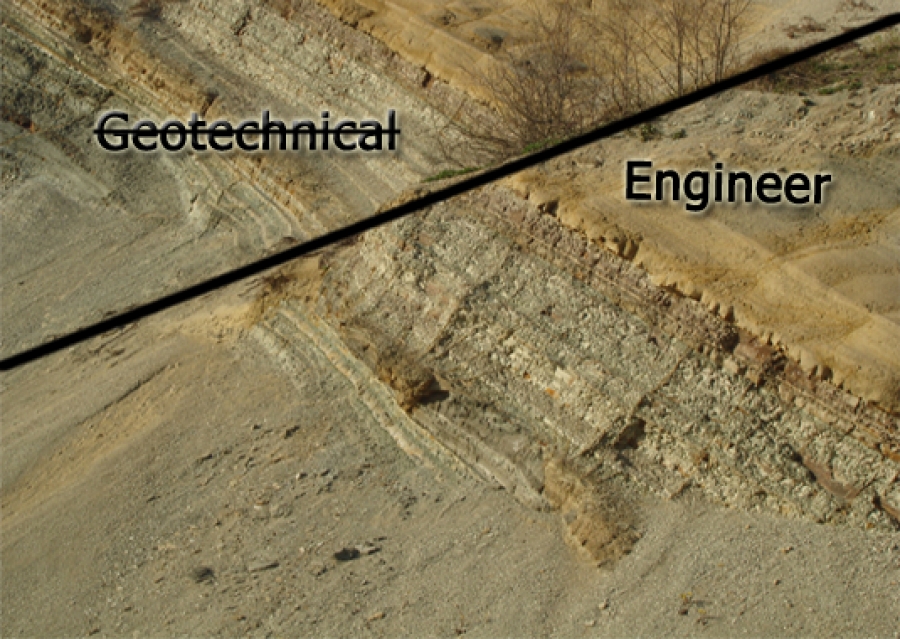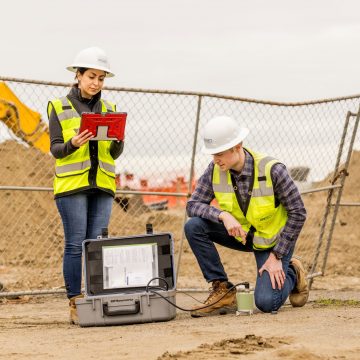Geotechnical Engineering Companies in South Africa: Leading Professionals in Dirt and Foundation Analysis
Geotechnical Engineering Companies in South Africa: Leading Professionals in Dirt and Foundation Analysis
Blog Article
A Detailed Introduction of the Trick Solutions Provided by Consulting Civil Engineering Professionals in Modern Building And Construction
Consulting civil engineering professionals are important to the success of modern-day building tasks, using a complex collection of services that address various challenges. From performing thorough website assessments and feasibility researches to guaranteeing conformity with rigorous regulative structures, these specialists prepared for secure and sustainable development. Their proficiency includes structural design and project monitoring, which are important for accomplishing cost-efficient and timely results. As the intricacy of building projects remains to develop, understanding the full spectrum of services they give ends up being significantly important for stakeholders. What implications does this have for the future of construction practices?
Website Analysis and Expediency Researches
When embarking on any kind of building task, understanding the website's features is essential, as it straight influences the expediency and design of the advancement. Website analysis and feasibility research studies are important elements of the pre-construction stage, making it possible for stakeholders to make educated decisions. These researches include a comprehensive assessment of the physical, ecological, and governing aspects of the website.

By integrating these elements, civil engineering experts can supply an alternative sight of the site's feasibility for the intended advancement. Inevitably, extensive website analyses and feasibility researches lay the foundation for effective task implementation, minimizing threats and optimizing resource appropriation.
Structural Layout and Analysis
Following a comprehensive site assessment and feasibility study, the following crucial phase in the construction process is architectural layout and evaluation. This crucial solution entails the growth of architectural systems that make certain the safety and security, toughness, and financial feasibility of a job. Consulting civil engineers use innovative methods and software application to assess tons, stress and anxieties, and product buildings, making certain that designs comply with relevant codes and criteria.
Structural layout incorporates different elements, consisting of beam of lights, columns, foundations, and bearing walls. By applying principles of auto mechanics and material scientific research, engineers develop frameworks that can hold up against environmental pressures such as wind, seismic task, and snow lots. The evaluation phase includes precise estimations to anticipate the behavior of these frameworks under numerous problems, ensuring they can do as intended throughout their life-span.
In addition, consulting designers collaborate closely with designers and other stakeholders to incorporate structural aspects visually and functionally. The deliverables usually consist of in-depth drawings, specs, and thorough records that help with the construction procedure. Ultimately, efficient structural layout and evaluation are critical in decreasing dangers, maximizing resources, and accomplishing effective project end results in modern building.
Job Monitoring and Control
Efficient task management and coordination are vital parts of successful civil design solutions, ensuring that building jobs are provided in a timely manner, within budget, and to the required high quality requirements. Consulting civil designers play a critical duty in orchestrating different task aspects, from initial preparation through to project completion. This involves not only the technological elements of layout and building however additionally the tactical management of sources, stakeholders, and timelines.

In addition, civil engineering consultants stress the value of documentation and reporting throughout the job lifecycle - geotechnical engineering in south africa. By keeping accurate documents, they ensure openness and responsibility, which fosters count on amongst all celebrations involved. Inevitably, skilled task management and sychronisation result in boosted task results, straightening with client expectations and adding to the general success of the building and construction undertaking
Regulatory Conformity and Permitting
Successful job management lays the foundation for addressing regulative compliance and permitting requirements in civil design tasks. Making sure adherence to local, state, and federal guidelines is critical for the successful implementation and conclusion of any kind of construction endeavor. Consulting civil engineering specialists play an important function in navigating the complicated landscape of regulative structures and permitting procedures.
These experts are fluent in zoning regulations, building codes, ecological policies, and safety and security criteria that control construction methods. They perform complete assessments to determine all appropriate regulations, ensuring that jobs abide by required legal needs. By working together with governmental companies and stakeholders, speaking with designers promote the allowing procedure, enhancing approvals and minimizing hold-ups.
In addition, they prepare and submit the requisite documentation, such as site strategies, ecological effect evaluations, and design reports. This aggressive technique not only promotes conformity however likewise improves task feasibility and sustainability. Inevitably, reliable regulatory compliance and permitting are essential elements of a successful civil engineering project, securing both the setting and public welfare while adding to the general stability and success of building efforts.
Lasting Layout Practices
Sustainable layout practices are increasingly identified as vital elements in civil design, with an emphasis on lessening ecological impact while making the most of resource efficiency. These methods include a variety of methods targeted at advertising environmental equilibrium and decreasing the carbon footprint of building projects.
One key facet of sustainable layout is the assimilation of renewable resource resources, such as solar and wind, into structure designs. This More Info not just lowers dependence on nonrenewable fuel sources however also boosts lasting expense savings. Additionally, the usage of lasting products, consisting of recycled or rapidly sustainable sources, plays a considerable duty in decreasing waste and saving natural deposits.
Water administration approaches, such as rain harvesting and efficient watering systems, are also essential in sustainable layout. These methods aid in lowering water intake and protecting regional water ecosystems. In addition, ecologically sensitive site planning makes sure very little interruption to the natural landscape and promotes biodiversity.
Consulting civil engineering professionals contribute in executing these sustainable design practices. Their knowledge permits the implementation of innovative services that line up with both regulative demands and client purposes, eventually adding to an extra sustainable developed atmosphere.
Verdict
In summary, getting in touch with civil design specialists give vital solutions that underpin the success of modern-day building jobs. Through careful site my sources assessments, ingenious architectural style, effective task management, adherence to regulatory standards, and the implementation of sustainable techniques, these specialists add to the production of secure, efficient, and environmentally accountable growths. The combination of these essential solutions not just boosts task outcomes yet also promotes a lasting future in the building industry.
Effective project management and control are important components of successful civil engineering services, making certain that building jobs are delivered on time, within budget plan, and to the called for top quality requirements. Consulting civil designers play an essential function in orchestrating various project components, from preliminary planning via to project conclusion. Eventually, skilled job monitoring and sychronisation lead to visit the site boosted project end results, aligning with customer expectations and adding to the total success of the building and construction venture.

Report this page